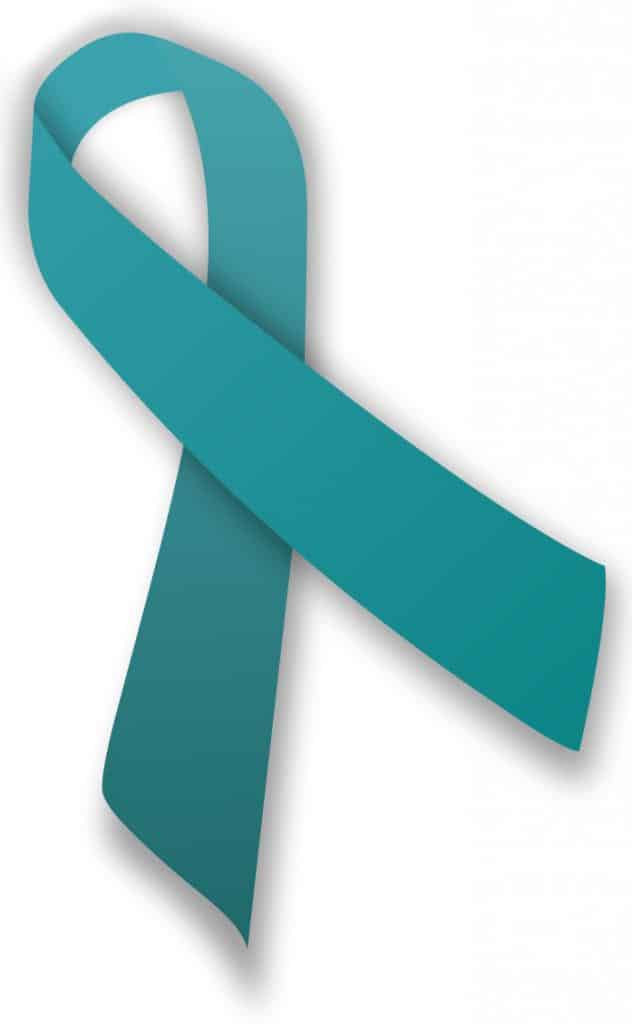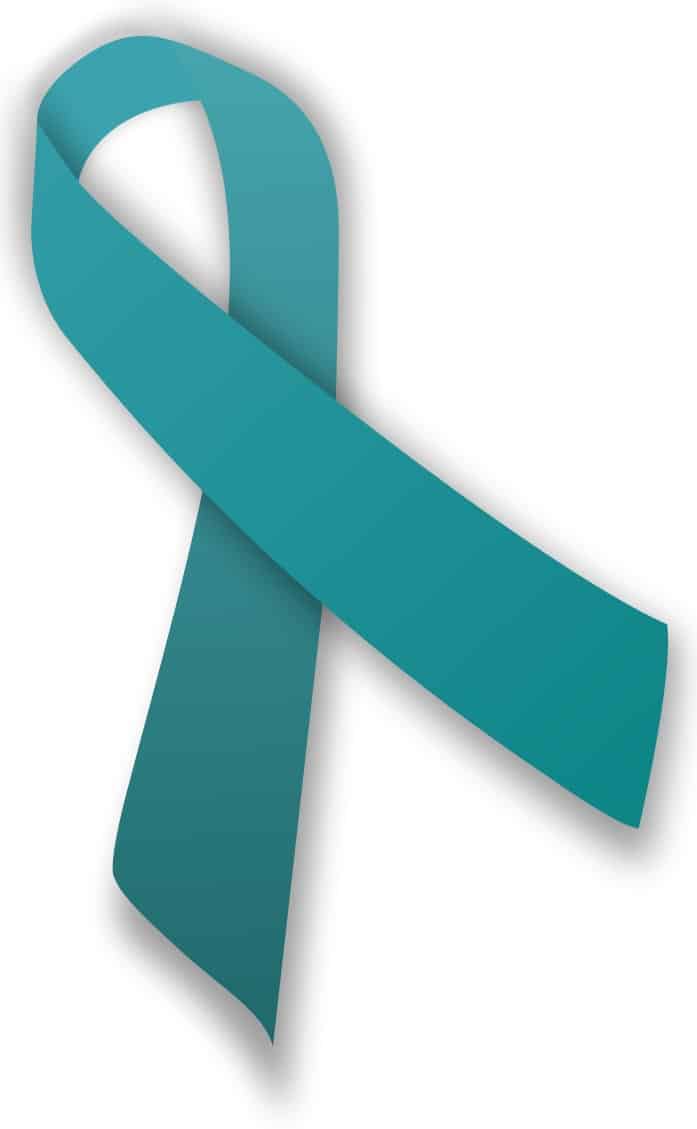
Overcoming Ovarian Cancer
Hannah Hurst, Staff Writer
Photo courtesy of Wikimedia Commons
The color for Ovarian cancer awareness is teal.
The month of September contains several different types of cancer awareness campaigns, such as thyroid cancer, leukemia, prostate cancer, lymphoma and also ovarian cancer. For many people, cancer carries devastating consequences. But for North Greenville University�s assistant professor of Political Science Mark Roader and his wife, cancer brought only a beautiful testimony of God�s faithfulness.
Roader explains, �My wife�s experience with ovarian cancer has been extremely unique.�
Back in 2015, Roader�s wife visited a gynecological oncologist after discovering a solid mass on her ovary. Her OB-GYN told her not to worry and that it probably was not something serious. The oncologist told her that she also had a uterine polyp, but he believed it could easily be removed along with the masses in one simple surgery. �About a half-hour into the operation, the doctors came down to consult with me and said the pathologist is concerned that there was at a minimum borderline tumor tissue if not cancer,� said Roader.
Roader stated, �A few days later the oncologist called to confirm it was cancer.�
Stunned at this news and still grieving the sudden loss of his father less than two years prior, Roader felt discouraged at the thought of wanting to grow his family. Roader�s wife also had hoped to have more children in the future.
Forcing himself to not giving up hope yet, Roader began to do some of his own research. Roader learned that a �full hysterectomy is not necessary if the cancer was confined to the one ovary and there was no spread of the cancer.� Roader talked with his wife’s oncologist who responded saying that his wife’s case �was a needle in a haystack and not black and white. The form of cancer she had was epithelial serous, which is the most aggressive and typically requires a full hysterectomy.�
Amazingly, Roader describes that �The cancer ended up being a very small amount and confined to the right ovary. The doctors biopsied surrounding tissue and everything was clear, there was no spread.� The oncologist then referred the Roader family to Duke where they would seek a second opinion from the director of gynecologic oncology.
Roader recalls his visit to Duke as, �The doctor concurred that low grade, stage one epithelial serous ovarian cancer is very rare. He called it ‘bad luck’ cancer, and that it wasn�t tied to genetics or weight. They laparoscopically checked her lymph nodes for any signs of spread and they were all clear. He believed that there were solid arguments for not doing a full hysterectomy. He also believed that she was cancer free and in no need of chemotherapy.�
Tuesday, Sept. 5, Roader and his wife hope to welcome their new son into the world. If all goes according to plan, Roader�s wife will have a c-section delivery.
�God has been faithful,� stated Roader.
However, Roader and his wife understand the rarity of their scenario and realize that unfortunately, most cases of ovarian cancer result in a full hysterectomy. When asked to share advice for other women who may be battling ovarian cancer, Roader stated, �make sure you see an oncologist, not a regular ob-gyn, and go to a top ranked cancer institute like Duke. If we had followed the recommendation of the doctors here in Greenville, my wife would not be on the verge of delivering a second child. Always get a second opinion.�
�

